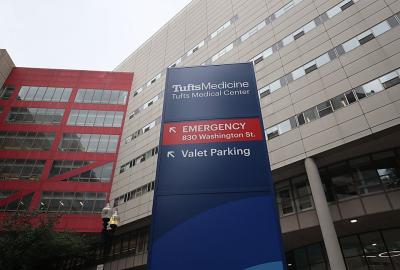State to give hospitals $180 million in latest COVID relief - The Boston Globe

DATE: August 3, 2023

The state’s most vulnerable hospitals are about to get an infusion of cash, thanks to a supplemental budget bill that Gov. Maura Healey signed this week.
Legislators said the hospital funding, a total of $180 million, will be essential to institutions grappling with deep financial losses lingering from the pandemic, but specific rules will mean the money is targeted to hospitals that serve high portions of low-income patients and those with proven financial difficulty
The first $91.5 million will go to hospitals that answered a request for information, put out by the Executive Office of Health and Human Services in March. Eligible hospitals must have a high percentage of patients on government insurance, and their prices must be lower than those of their peers.
But the funding isn’t a blank check — hospitals must hire an independent third-party, approved by the state, to complete a detailed financial and operational review, and the chair of the hospital’s board must commit to reviewing the report with state officials.
Another $58.5 million is targeted to hospitals that have a high number of patients on Medicaid. Spokespeople with the speaker’s office said, based on data from fiscal 2021, eligible facilities could include Cambridge Health Alliance, Boston Medical Center, Holyoke Medical Center, Brockton Hospital, Lawrence General Hospital, Mercy Medical Center and Tufts Medicine. Hospitals must prove a financial need to qualify for the funding, disclosing their liquidity and total margins.
Additionally, $30 million will be available for the Executive Office of Health and Human Services to give to organizations that demonstrate “significant financial need.” The office will also consider the relative prices the hospital charges and prioritize those that serve high numbers of patients on government insurance.
Hospitals will only be eligible to receive funds through one of the mechanisms.
Overall, the package was meant to acknowledge the financial reality of the state’s hospitals, some of which still struggle with high staffing costs and inflationary pressures.
According to July data from the Centers for Health Information and Analysis, 38 of the state’s 60 hospitals reported positive total margins for the fiscal year through March. However hospitals last year were still receiving millions in support from state and federal sources to supplement rising costs. Through March, hospitals reported $251.6 million in federal and state COVID relief funds — higher than the $229.4 million hospitals reported receiving in the same period last year.
Some systems need these funds urgently. Tufts Medicine, for example, must improve its operations by September to avoid defaulting on an $800.8 million agreement with bond holders.
“We certainly appreciate the legislature’s support for hospitals working through these challenging times,” Tufts Medicine CEO Mike Dandorph had said of the funding as it worked its way through the legislative process. Executives were not available to comment on the recent vote.
Signs of financial struggle have also become apparent at Heywood Healthcare, which in June paused construction of a new surgical pavilion. A spokeswoman said the hospital had been impacted by a costly electronic medical record system transition and workforce challenges.
“While we do not know the formula for the supplemental budget allocation, we are hopeful Heywood Healthcare will be included,” said Dawn Casavant, vice president of external affairs for Heywood Healthcare.
Though there wasn’t yet a sense of which hospitals would receive money and how much, the Massachusetts Health & Hospital Association voiced appreciation for the funding.
“At a time when many hospitals are still struggling to remain above water, our elected officials have again shown their commitment to helping providers recover and keeping essential care available for patients,” said Steve Walsh, president and CEO of the Massachusetts Health & Hospital Association. “The relief passed today ... will have an immediate impact.”
Health experts applauded the state for requiring additional information from hospitals. Paul Hattis, senior fellow at the Lown Institute, a Needham-based health care think tank, said the move provided a measure of transparency, using data to distribute money where it was needed most.
“We need much more detailed info than we’re getting,” Hattis said. “This is a good step in the right direction — not giving precious state dollars to those who don’t really need it.”
By Jessica Bartlett Boston Globe Staff, August 3, 2023
